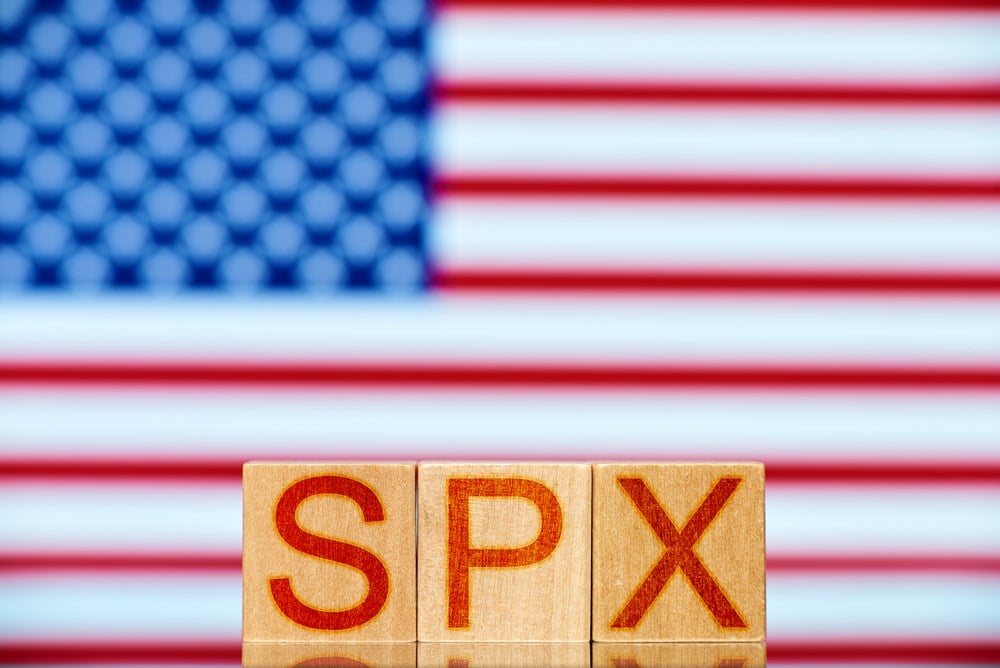
The S&P 500 is one of the most widely used measures of U.S. stock market performance. Launched in 1957, it has long served as a benchmark for institutional and private investors alike.
At the surface, the S&P 500 is simply a market cap weighted collection of the 500 largest publicly traded equities. But it's the diversification this creates that is the main attraction.
While it is considered a large cap index, company sizes vary tremendously. At the top of the heap are a handful of trillion dollar companies — Apple, Microsoft, Alphabet, Amazon and Nvidia — that presently account for around 25% of day-to-day returns. At the bottom are 50 or so companies with $4 billion to $10 billion valuations — technically speaking, these are mid-caps.
You then have representation across all 11 economic sectors and 24 industry groups. There are also big differences in growth stages, profitability and risk profiles. Put it all together and you get one powerful wealth generator.
Including dividends, the S&P 500 has produced an annualized return of approximately 10.2% since inception. A $100 investment in 1957 would be worth more than $65,000 today. That is, if you went ‘long.’
Some investors also make money by going ‘short’ or betting against stocks. Although not a prudent strategy long-term, short selling the S&P 500 over shorter periods can prove valuable when markets are too hot or volatile.
Shorting individual S&P 500 stocks is a different story. Since index inclusion requirements go beyond size and into measures of financial stability, S&P 500 companies tend to be of high quality. This makes betting against quality ‘blue chips’ a risky proposition. It is also why S&P 500 stocks tend to have lower short interest than less proven, fundamentally weaker stocks.
But like everything in stock investing, there are exceptions.
Ten S&P 500 companies currently have at least 10% of their publicly available shares, or float, in the hands of short sellers. These three have the dubious distinction of being the ‘S&P’s 3 Most Hated.’
#1 - RL
Ralph Lauren Corporation (NYSE: RL) may be admired for its iconic clothing, but it is currently the most disrespected stock in the S&P 500. Short sellers hold 13.2% of the 38.9 million share float. The premium apparel maker is up 9.6% this year but a week away from finishing down for the third straight month.
The main knock on Ralph Lauren is that it commands high prices to match its polo-themed shirts and pants. Although it caters to more affluent customers, not everyone will be able to keep up with price hikes. In response to cost inflation, Ralph Lauren has been raising prices to boost profits. So far the strategy has worked, as evidenced by recent quarterly earnings growth. But as the bears will argue, this runs the risk of alienating customers. This has made Ralph Lauren the S&P’s poster child for inflation’s impact on discretionary spending.
#2 - PARA
With 13.1% of its float short, Paramount Global (NASDAQ: PARA) is neck and neck with Ralph Lauren for the S&P 500’s most hated stock. Even with the stock trading near a three-year low of $11.50, shorts continue to hammer away.
The media conglomerate is a popular bearish bet in part because it relies on traditional TV programming on CBS, BET, MTV, VH1, CMT, Comedy Central, Nickelodeon and its other cable networks. With consumers shifting to digital platforms, Paramount has become a quintessential ‘cord-cutting’ play.
Of course, the company has pivoted to streaming to survive but faces immense competition from Netflix, Disney+ and several others. This has forced Paramount to spend mightily to attract subscribers, an uphill battle that is taking a toll on profitability. The wild card here is that if Paramount’s value keeps plummeting, it may become an attractive acquisition target. This could lead to a premium bid and some significant short covering.
#3 - SEDG
Last week, investors saw first hand why SolarEdge Technologies, Inc. (NASDAQ: SEDG) is a top shorted stock. The maker of solar power inverters suffered a huge selloff on Friday after announcing disappointing preliminary third-quarter financials. Management revealed that it will miss its sales guidance by as much as $200 million due to “substantial unexpected cancellations and pushouts” from European distributors. The warning shows that inflation and high rates are taking a greater-than-anticipated toll on solar panel installation activity worldwide.
Short interest on SolarEdge decreased after some bears banked their winnings but still remained high at 12.2%. Friday’s 21.3 million share trading volume suggests that the news was the last straw for many shareholders who were holding out hope for a turnaround. The question now: did the selloff go too far?
Most Wall Street analysts have suggested SolarEdge is at least a hold if not a buy following Friday’s 27% selloff. Only one, Bank of America, sees the stock heading even lower. With the latest consensus price target implying 84% upside, this solar stock could turn into a heated debate.






